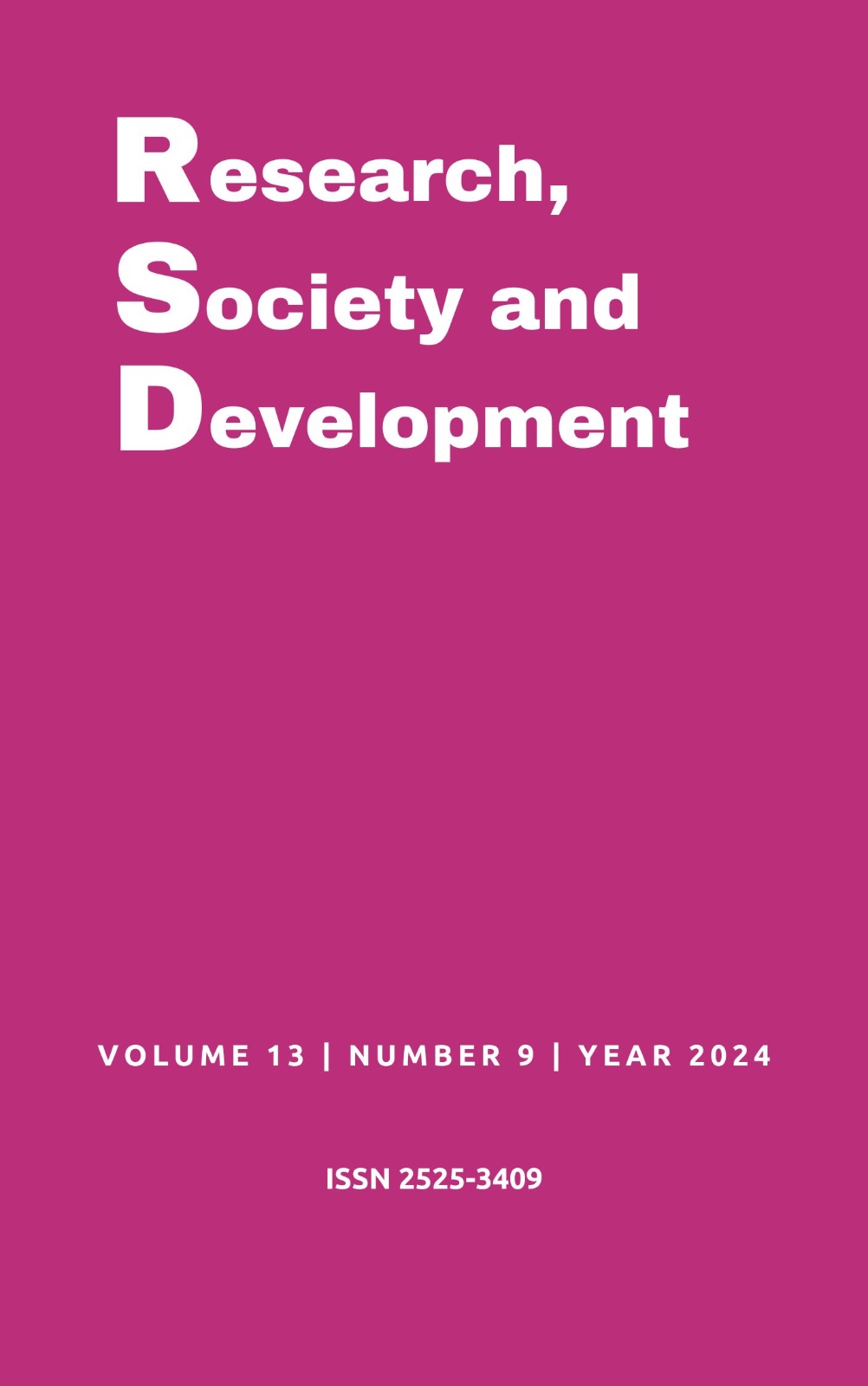Emotional competencies of the nurse manager: A scoping review protocol
DOI:
https://doi.org/10.33448/rsd-v13i9.46450Keywords:
Emotional intelligence, Social skills, Nurse administrators, Health management.Abstract
Nursing work is increasingly complex and demanding. In this sense, the development of emotional competencies by nurse managers is crucial as a response to current challenges in health management. This scoping review aims to map the emotional competencies of nurse managers. The scoping review will be carried out according to the guidelines established by the Joanna Briggs Institute and PRISMA-ScR and will include studies on nurse managers' emotional competencies. Both published and unpublished studies written in english, portuguese or spanish will be considered. When selecting the articles, the duplicates will be removed. The relevance of the titles, abstracts and full texts will be analyzed. Data extraction will be carried out using an instrument previously designed for this purpose, based on the model in the Joanna Briggs Institute Manual. The results will be presented in flowcharts, tables and narrative synthesis. The literature research carried out previously made it possible to identify some of the emotional competencies of nurse managers, such as motivation, empathy and self-control. This review will contribute to identify the emotional competencies of nurse managers.
References
Augusto, M. (2013). Competence model for nurses with management roles in Portugal: exploratory study. (Master’s thesis). Porto: Porto Polytechnic Institute. Higher School of Industrial and Management Studies.
Branco, M. (2004). Self-Motivation. Quarteto Editora
Decree-Law No. 71/2019. (2019). Diário da República, 1st series, nº 101, May 27th. https://files.diariodarepublica.pt/1s/2019/05/10100/0262602642.pdf
Leal, L., Soares, M., Silva, B., Bernardes, A., & Camelo, S. (2018). Clinical and managerial skills for hospital nurses: views of nursing graduates. Brazilian Journal of Nursing, 71, 1514-1521. 10.1590/0034-7167-2017-0452
Goleman, D. (2021). Emotional intelligence. (17th ed.). Themes and Debates – Readers Circle.
Goleman, D. (2022). How to be a leader: the importance of emotional intelligence. Themes and Debates – Circle of Readers.
Goleman, D. (2022). Working with Emotional Intelligence. (5th ed.). Themes and debates – Circle of Readers.
Mohamed, F., & Yousef, H. (2014). Emotional Intelligence and Conflict Management Styles among Nurse Managers at Assiut University Hospitals. Journal of Education and Practice, 5(5), 160-165. file:///C:/Users/catar/Downloads/10967-13267-1-PB%20(2).pdf
Moher D, Shamseer L, Clarke M, Ghersi D, Liberati A, Petticrew M, et al. 2015. Preferred reporting items for systematic review and meta-analysis protocols (PRISMA-P) 2015 statement. Systematic Reviews, 4(1). 10.1186/2046-4053-4-1.
Open Science Framework Registries. (2023). The open registries network. https://osf.io/registries
Peters, M., Godfrey, C., Mclnerney, P., Munn, Z., Tricco, A., & Khalil, H. (2020). Chapter 11: Scoping Review. In: Aromataris E, Munn Z (Eds), JBI Manual for Evidence Synthesis. The Joanna Briggs Institute. 10.46658/JBIMES-20-12
Porfírio, C., Coelho, M., Mota, M., Sequeira, C., Santos, M., & Pires, R. (2023). Emotional competencies of the nurse manager: a scoping review protocol. Open Science Framework Registries. 10.17605/OSF. IO/G7WTY
Regulation n.º76/2018 of Independent Administrative Entities and Autonomous Administration. (2018). Regulation of Advanced Added Competence in Management. Official Gazette of the Union, 2nd series, nº21, PART C, January 30th. https://files.dre.pt/2s/2018/01/021000000/0347803487.pdf
Rodrigues, W., Martins, F., Carvalho, F., Costa, D., Fraga, F., Paris, L., Junior, L., Bueno, D., & David, M. (2019). The importance of the nurse manager in health institutions. Revista Saúde em Foco, 11, 382-395. http://portal.unisepe.com.br/unifia/wp-content/uploads/sites/10001/2019/03/031_A-IMPORT%C3%82NCIA-DO-ENFERMEIRO-GESTOR.pdf
Silva, M., Cardoso, E., Miranda, T., & Sampaio, J. (2019). Emotional skills as a device for integrating health care: contributions to interprofessional work. Interdisciplinary Studies in Psychology, Londrina, 10(2), 226-239. 10.5433/2236-6407.2019v10n2p226
Soeima, S. (2021). Emotional competence capabilities of nurses in caring for people in critical situations. (Master’s thesis). Trás-os-Montes: University of Trás-os-Montes and Alto Douro, School of Nursing. https://repositorium.sdum.uminho.pt/bitstream/1822/76209/1/Sara%20Joana%20Ferreira%20Soeima.pdf
Tricco, A.C., Lillie, E, Zarin, W, O'Brien, K.K., Colquhoun, H, Levac, D., et al. (2018). PRISMA extension for scoping reviews (PRISMA-ScR): checklist and explanation. Annals of internal medicine, 169(7), 467-473. https://annals.org/aim/fullarticle/2700389/prisma-extension-scoping-reviews-prisma-scr-checklist-explanation
Ribeiro, L. (2020). Emotional intelligence and performance: a study of nurse managers. (Master’s thesis). Coimbra: Faculty of Economics of the University of Coimbra.
Rosa, C., Carvalho, A. & Barja, P. (2022). Soft skills: Development of Nurse Competencies today. Univap Magazine, 28(57). 10.18066/revistaunivap.v28i57.2592
Vilela, C. (2006). Emotional intelligence capabilities in nurses: validation of a measurement instrument. (Master’s thesis). Aveiro: University of Aveiro.
Xavier, S. & Nunes, L. (2016). Meanings attributed to Nurses' Emotional Competence: empirical study and impact on education. Ibero-American Journal of Health and Aging, 2(2), 624-641. https://comum.rcaap.pt/handle/10400.26/19425
Downloads
Published
Issue
Section
License
Copyright (c) 2024 Catarina Raquel Ferreira Porfírio; Márcia Silva Coelho; Mauro Mota; Carlos Alberto da Cruz Sequeira; Margarida Reis Santos; Regina Maria Ferreira Pires

This work is licensed under a Creative Commons Attribution 4.0 International License.
Authors who publish with this journal agree to the following terms:
1) Authors retain copyright and grant the journal right of first publication with the work simultaneously licensed under a Creative Commons Attribution License that allows others to share the work with an acknowledgement of the work's authorship and initial publication in this journal.
2) Authors are able to enter into separate, additional contractual arrangements for the non-exclusive distribution of the journal's published version of the work (e.g., post it to an institutional repository or publish it in a book), with an acknowledgement of its initial publication in this journal.
3) Authors are permitted and encouraged to post their work online (e.g., in institutional repositories or on their website) prior to and during the submission process, as it can lead to productive exchanges, as well as earlier and greater citation of published work.


